Mission: Impossible — The Final Reckoning | The Endless Goodbye
Tom Cruise stopped at nothing—until everything stopped at him. Accept the finality, and the reckoning ends. Refuse it, and we’re left watching the cinema of exhaustion play on.
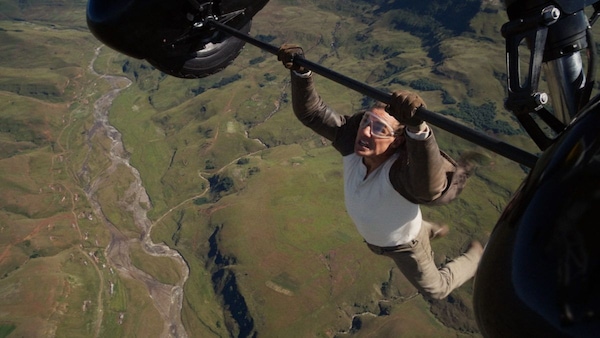
Still from Mission: Impossible — The Final Reckoning
Last Updated: 06.20 PM, May 17, 2025
UNLIKE MOST ACTION-ADVENTURE FRANCHISES, Mission: Impossible has often thrived on expressing how hard it works. It’s the opposite of effortless. Nothing looks easy; nobody is smooth and sophisticated; not a frame seems bereft of blood, sweat, madness and tears. A large part of its allure is rooted in this utter lack of vanity, this desire to be open about its working-class spectacle. Tom Cruise, arguably the most majestic of modern superstars, hasn’t been afraid to channel this ugliness as Ethan Hunt. His stunts over the years — including a (literally) breath-taking underwater quest and an acrobatic mid-air brawl in the latest instalment — feature all sorts of cosmetic imperfections: the rippling of skin folds, awkward facial contortions, wide-eyed terror, garbled gasps, desperate lunges. The miracle was always how real and impossibly human he looked.
Up until Fallout (2019), this cinema of physical exertion was designed to earn our attention. Over the last few years, though, it’s been designed to demand our respect. The earnestness has shape-shifted into a sort of artistic solemnity. Ethan Hunt was busy saving the world against the odds. But the success of Top Gun: Maverick (2022) introduced an idea that would change the course of the MI franchise: Tom Cruise is saving the movies. It’s a grand and dramatic statement, a story unto the heritage of storytelling. You can almost touch the moment Dead Reckoning — Part One (2023) woke up to this statement, weaponised it and made saving its sole responsibility. It’s like a gawky kid suddenly realising that utilitarianism was his game all along, and he must now expand the identity of this game. Consequently, the physical exertion was no longer offset by emotional fluidity. Instead, it adopted an extra layer — the cinema of intellectual exertion — to flaunt its newfound value. It now wants us to know how hard it’s thinking.
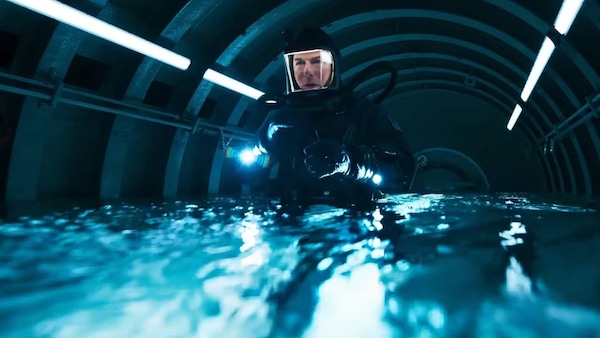
In The Final Reckoning, the responsibility morphs into a burden. The lack of vanity is its language of vanity. The one-line mission of stopping AI from destroying the planet is inflated into a complicated and studious labyrinth-like plot of relentless exposition, tangential sentimentalism, arthouse imagery and customised stakes. There’s a source code deep in Arctic ocean called the Podkova, a plug-in thingy called the Poison Pill, the Entity hijacking the systems of all nuclear nations, a magical pen drive constructed to bottle the entity in less than a split second, terms like “the anti-God” and “doomsday vault,” and so much. Just so, so much. Everything is elaborate to the point of incoherence, like a fever dream that insists on internalising the gravity of what it stands for. The incessant flashbacks and forced links to previous MI entries keep beefing up a body that has gotten into weight training after abandoning cardio. It chooses the most convoluted path from any point A to point B, throwing in a cast of dispensable faces and bit roles that turn the film into an overplanned farewell dinner.
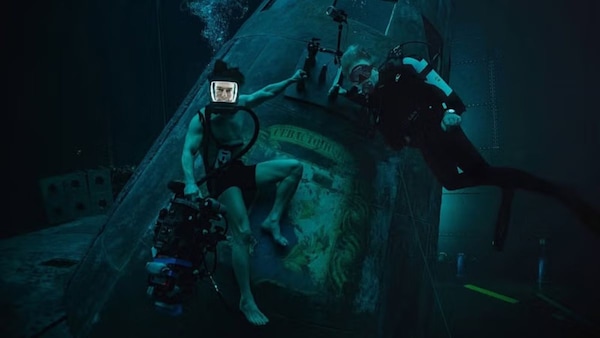
Hunt counts on us noticing the weight of the world on his muscular shoulders, just as Cruise counts on us noticing just how far he’s willing to go — and how anticlimactic and boring he’s willing to get — in pursuit of the singularity of Cinema. There’s almost a Nolan-like seriousness about being smart and complex and dense — the editing rhythms, doom-and-gloom tonality and montages have a bit of The Dark Knight Rises, Inception, Interstellar (the exposition dumps disguised as ‘conversations’ in particular) and Oppenheimer. Except, Nolan’s stories are conceptually and philosophically heavy — they’re brainy blockbusters trying to be more accessible. The MI movies, however, have gone from subverting the legacy of dumb blockbusters by trusting the audience to being brainy blockbusters that don’t trust their audience enough. The Final Reckoning seals its fate by continuing to be esoteric under the guise of refusing to be ‘easy’ entertainment. It’s nearly endearing to see the franchise swallow itself with so much conviction. The little details — like the recurring theme of Hunt being brought back from the dead by the women who jump-started his heart — don’t hit like they should. I kept waiting to be moved, but the impact never came because Hunt’s lack of interiority is conflated with Cruise’s clinical curiosity.
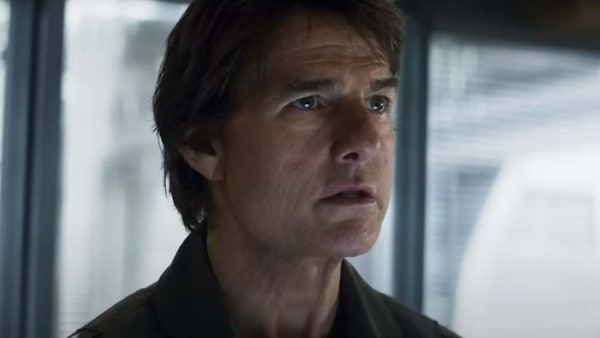
The hype surrounding this latest film — ostensibly the last one (there’s never a guarantee) — is an integral part of the viewing experience. Over the last few days, in Cannes and elsewhere, Cruise can be seen promoting The Final Reckoning by promoting other big-screen headliners. Whether it’s sharing a long hug with Michael B Jordan post Sinners, or talking up the upcoming From the World of John Wick: Ballerina, Cruise has been painfully generous in his demonstrations. The all-for-one-and-one-for-all solidarity is visible everywhere he goes. He may as well be wearing a cape and mask. But that’s the thing about saving the world, and by extension, the world of movies. It’s become more about how bad he wants it than what it means; the focus is no longer the consequence, it’s the act itself. There’s also a sense of what Tom Cruise — and the righteousness of the franchise — expects in return: complete surrender to the anti-spectacle of ambition. The courage to not make a flimsy crowd-pleaser is placed higher than the courage of crafting the right film.
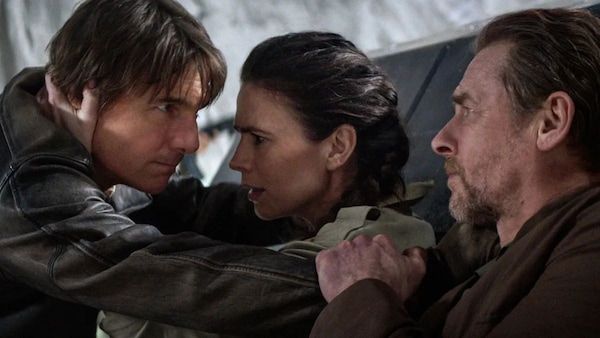
It’s a bit like Ethan Hunt — the distinctly sexless, empathetic, platonic, boyish and homeless spy — making a big deal out of his personality and stepping out of the shadows to let the world know exactly how he kept rescuing them. It goes against the very grain of Hunt’s famous anonymity. He forces the film to behave like someone worthy of its lofty stature: be grown-up, be messy and weird and knotty so that they know we care. We care so that you don’t have to. When Cruise is wading through a sunken submarine on the brink of a deep-sea void or weaving across biplanes in the sky, the effort used to be the performance. The violent urge to help and protect was isolated from its context. But The Final Reckoning reacts to the popular reflection in the mirror; it looks for reasoning in the creases on its forehead, deliverance in its zits, and method in the wrinkles under its eyes. The result is not supposed to be pretty, but there’s a self-awareness about its pressure that’s tough to process. It’s a goodbye that’s hellbent on making us feel the necessity — and the bruised legs — of its journey. Even the theme music is absent across set-pieces. To put it crudely: Tom Cruise stopped at nothing, until everything stopped at him. Should we choose to accept this finality, the reckoning will self-destruct in 5 seconds. If not, we are left with the cinema of exhaustion.
